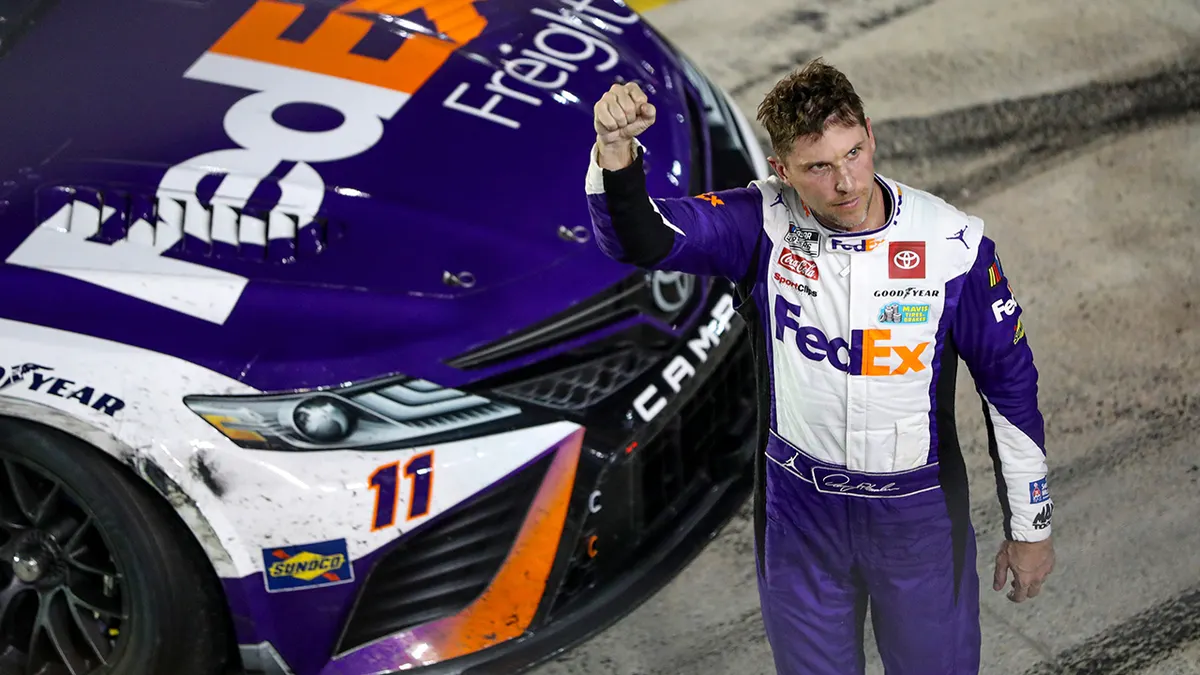The 43-year-old veteran driver may not boast a championship title, but his impressive career record speaks volumes, with a tally of 51 victories, among which are three triumphant Daytona 500 races.
In the annals of NASCAR history, only a handful of drivers stand shoulder to shoulder with Hamlin in terms of Daytona 500 victories or more. Icons like Jeff Gordon, Dale Jarrett, and Bobby Allison have each clinched three victories, while Cale Yarborough boasts four, and the legendary Richard Petty reigns supreme with seven triumphs.
Hamlin’s three Daytona 500 victories have all been secured since 2016, showcasing his enduring competitiveness and consistent performance. Moreover, he has come tantalizingly close to victory on numerous other occasions throughout his career.

As he prepares for the upcoming season, Hamlin is contemplating a subtle shift in his approach to Sunday’s 500-mile race, driven in part by a desire to prioritize his individual success.
Remaining loyal to manufacturer alliances has been a prevailing trend in recent years, with teams of the same make often collaborating closely to optimize race strategy. However, Hamlin is inclined to return to basics and prioritize his own instincts and tactics in pursuit of victory.
“Whilst having teammates is advantageous and can be instrumental in certain scenarios to secure wins, I believe that sometimes it’s the drivers who prioritize their own objectives and make decisive moves for personal gain who emerge victorious,” Hamlin remarked.
He cites last year’s Daytona 500 winner, Ricky Stenhouse Jr., as a pertinent example. Despite driving a Chevrolet, Stenhouse’s JTG Daugherty Racing operates as a single-car entity, devoid of traditional “teammates.
” Stenhouse’s race-winning move in last year’s event, facilitated by a push from Toyota driver Christopher Bell, underscores the efficacy of self-interested maneuvers.
“We’ve encountered situations where we’ve had to choose between supporting a teammate’s move or backing another driver’s decision, and more often than not, opting for the latter has yielded better results for the No. 11 team,” Hamlin reflected.
While acknowledging the importance of teamwork and mutual assistance on the track, Hamlin is resolute in his belief that a degree of self-interest is essential for success, especially in the high-stakes environment of superspeedway racing.
When asked about potential repercussions from his more self-centered approach, Hamlin remains unperturbed, emphasizing the imperative of prioritizing personal success in the pursuit of victory.
“In the final reckoning, while cooperation among drivers and teams is crucial in various aspects of the race, ultimately, one must be prepared to be selfish to secure these wins,” Hamlin asserted. “And if we triumph, it’s not just a victory for me—it’s a win for Toyota and Joe Gibbs Racing as well.”

